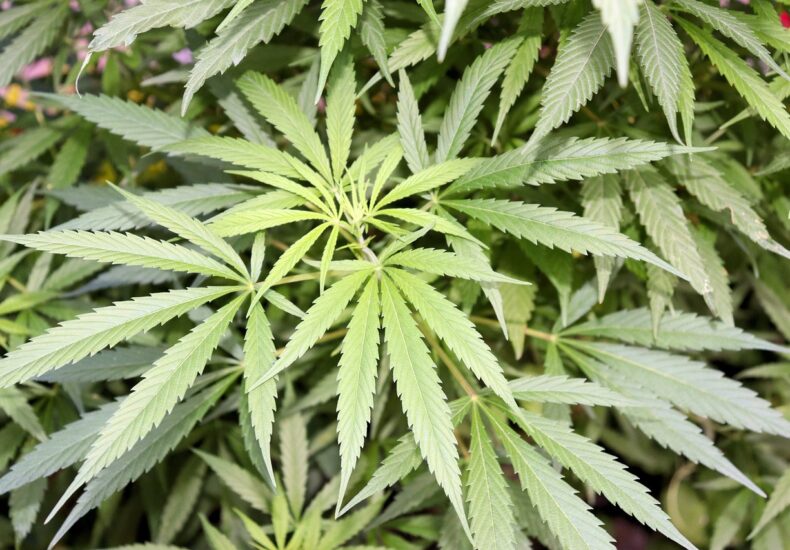
What Makes THCA Flower So Special?
In recent years, the cannabis industry has seen a surge in interest surrounding THCA flower. This unique form of cannabis offers a range of benefits and characteristics that set it apart from other cannabis products. Understanding what makes Tropical THCa flower special requires a closer look at its composition, effects, and potential applications.
Understanding THCA: The Basics
THCA, or tetrahydrocannabinolic acid, is a non-psychoactive cannabinoid found in raw and live cannabis plants. Unlike THC, which is known for its psychoactive effects, THCA does not produce a “high” when consumed in its natural state. This makes it an attractive option for those seeking the therapeutic benefits of cannabis without the mind-altering effects.
The Chemical Structure of THCA
THCA is the acidic precursor to THC. When cannabis is exposed to heat through smoking, vaping, or cooking, a process called decarboxylation occurs. This process converts THCA into THC, the compound responsible for the psychoactive effects. In its raw form, THCA retains its unique properties, offering potential health benefits without intoxication.
Health Benefits of THCA
Research into the health benefits of THCA is still in its early stages, but preliminary findings suggest a range of potential therapeutic applications. Some of the most promising areas of study include:
- Anti-inflammatory Properties: THCA has shown potential in reducing inflammation, which could be beneficial for conditions such as arthritis and other inflammatory diseases.
- Neuroprotective Effects: Early research indicates that THCA may help protect brain cells, offering potential benefits for neurodegenerative diseases like Alzheimer’s and Parkinson’s.
- Anti-emetic Properties: THCA may help reduce nausea and vomiting, making it a potential option for patients undergoing chemotherapy or those with chronic gastrointestinal issues.
- Appetite Stimulation: Similar to THC, THCA may help stimulate appetite, which can be beneficial for individuals with eating disorders or those undergoing treatments that suppress appetite.
THCA Flower vs. Traditional Cannabis
When comparing THCA flower to traditional cannabis, several key differences emerge. These differences can influence a consumer’s choice depending on their needs and preferences.
Non-Psychoactive Nature
One of the most significant distinctions is the non-psychoactive nature of THCA flower. This characteristic makes it appealing to individuals who want to experience the benefits of cannabis without the high associated with THC.
Consumption Methods
THCA flower can be consumed in various ways, including juicing, blending into smoothies, or using it in raw salads. These methods preserve the THCA content, allowing users to benefit from its properties without converting it to THC.
Case Studies and Research
Several studies and anecdotal reports highlight the potential of THCA flower in various therapeutic contexts. For instance, a study published in the “British Journal of Pharmacology” explored the anti-inflammatory effects of THCA, suggesting its potential in treating inflammatory conditions.
Another case study involved a patient with epilepsy who experienced a reduction in seizure frequency after incorporating THCA into their treatment regimen. While more research is needed, these examples underscore the potential of THCA as a therapeutic agent.
The Future of THCA Flower
As interest in cannabis continues to grow, so does the potential for THCA flower. Researchers are exploring its applications in various fields, from medicine to wellness. The non-psychoactive nature of THCA makes it an attractive option for those seeking alternative treatments without the side effects associated with THC.
Regulatory Considerations
The legal status of THCA flower varies by region, with some areas allowing its use and others imposing restrictions. As research progresses and public perception evolves, regulatory frameworks may adapt to accommodate the growing interest in THCA and its potential benefits.
Conclusion
THCA flower represents a unique and promising aspect of the cannabis industry. Its non-psychoactive nature, combined with potential health benefits, makes it an appealing option for a wide range of consumers. As research continues to uncover the full extent of its properties, THCA flower may play an increasingly significant role in both medical and recreational cannabis markets.
Understanding the distinct characteristics of THCA flower can help consumers make informed decisions about their cannabis use, whether for therapeutic purposes or personal enjoyment. As the industry evolves, THCA flower stands out as a special and valuable component of the cannabis landscape.
- Managing Your Canine’s Joint inflammation with CBD: An Animal Proprietor’s Overview
- Checking out the Conveniences of CBD Oil for Aging Dogs and Joint Inflammation Relief
- Brew Like a Pro: Understanding the Art of Making Perfect Mushroom Coffee
- ** The Influence of Gold IRA Charges on Your Financial Investment Strategy **.
- Tax Obligation Benefits of Purchasing Gold and Silver with Augusta